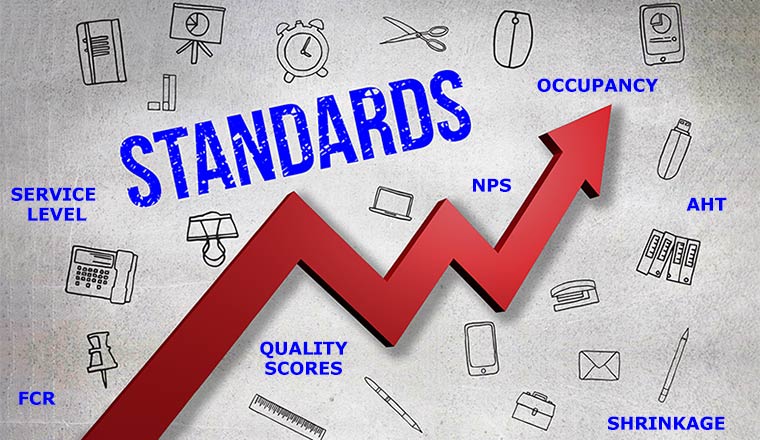Introduction
In the complex and interconnected world of industry, standards play a pivotal role in ensuring safety, quality, and efficiency across various sectors. These standards, often developed and maintained by recognized organizations and regulatory bodies, provide a common language and framework for businesses, manufacturers, and service providers. In this article, we will explore the paramount importance of standards in industry and how they contribute to the well-being of society, economic growth, and technological advancement.
In the intricate web of modern industry, standards serve as the unsung heroes, quietly but significantly influencing the quality and safety of products and services that touch our lives every day. These standards, meticulously crafted and meticulously maintained by esteemed organizations and regulatory bodies, are the invisible threads that bind together a complex world of production and consumption.
At their core, standards are a common language, a universal framework that transcends borders and industries. They establish a set of agreed-upon rules, specifications, and best practices that guide businesses, manufacturers, and service providers. This common understanding is fundamental in ensuring that products are safe, reliable, and consistent, regardless of where they are produced or who manufactures them.
Safety, the paramount concern of any standard, directly affects the well-being of society. Standards in industries like healthcare, automotive manufacturing, and food production are lifelines, safeguarding us from harm and assuring that the products we rely on are dependable. In healthcare, for instance, standards dictate the safety and efficacy of medical devices, ensuring that they meet rigorous criteria before they reach patients. In the automotive sector, standards underpin the construction of vehicles, addressing critical aspects such as crashworthiness, emissions, and fuel efficiency, ultimately saving lives and protecting the environment.
Quality, another hallmark of standards, extends beyond safety. It guarantees that products and services meet a predefined level of excellence, delivering value to consumers. From the precision of a Swiss watch to the durability of a steel beam used in construction, quality standards are the backbone of reliability and performance. Businesses and industries that adhere to these standards gain the trust of their customers, fostering brand loyalty and competitiveness.
Economic growth is intricately tied to standards. They facilitate trade by harmonizing technical specifications, streamlining international commerce, and reducing barriers to entry for businesses. When industries embrace these common standards, it opens doors to global markets, promoting economic expansion and job creation. Standardization also enables interoperability among various technologies, accelerating innovation and technological advancement.
In conclusion, standards are the silent architects of the industrial world, shaping the products and services that define our modern lives. Their significance extends far beyond mere technical specifications; they are the guardians of safety, the guardians of quality, and the architects of economic growth and technological progress. As we navigate the complexities of our interconnected world, it’s imperative to recognize and appreciate the pivotal role that standards play in our well-being and the advancement of society as a whole.
Explore this link for a more extensive examination of the topic: Introduction to the Position Classification Standards
One of the primary reasons standards are crucial in industry is safety. Whether it’s in manufacturing, construction, or healthcare, adhering to established safety standards is non-negotiable. These standards define best practices, safety protocols, and guidelines that help prevent accidents, injuries, and even disasters. For example, in the aerospace industry, strict standards ensure the safety of passengers and crew by setting rigorous requirements for aircraft design, maintenance, and operation.
Moreover, standards contribute to the reliability of products and services. When businesses follow standardized processes and quality control measures, consumers can trust that they are receiving a product or service that meets certain criteria. This reliability not only protects consumers but also safeguards the reputation and longevity of businesses.
For a comprehensive look at this subject, we invite you to read more on this dedicated page: Evidence Brief: Implementation of High Reliability Organization …

In today’s interconnected world, different industries often rely on technologies and systems that need to work together seamlessly. This is where standards for interoperability and compatibility come into play. For instance, in the IT industry, standardized communication protocols enable diverse devices and software to communicate effectively. This compatibility ensures that consumers can use various brands and products without encountering compatibility issues, making technology more accessible and user-friendly.
The importance of standards for interoperability and compatibility extends far beyond the IT industry. In an increasingly interconnected and technologically driven world, various sectors, from healthcare to transportation, rely on these standards to ensure the smooth flow of information and services.
Healthcare Integration: In the healthcare sector, interoperability standards enable electronic health records (EHRs) to be shared securely among different healthcare providers. This means that a patient’s medical history, test results, and treatment plans can be accessed by authorized healthcare professionals, ensuring continuity of care, reducing errors, and improving patient outcomes.
Transportation Efficiency: Interoperability is crucial in transportation systems, where various modes of transportation, such as buses, trains, and subways, need to work seamlessly together. Standardized fare payment systems and real-time data sharing between different transportation providers enhance the convenience and efficiency of urban mobility.
Financial Services: In the financial industry, interoperability standards underpin the global payment systems that enable transactions to occur across borders. These standards ensure the secure and efficient transfer of funds between banks, businesses, and individuals, supporting international trade and economic growth.
Smart Cities: As cities become smarter and more connected, interoperability standards play a pivotal role in integrating various systems, from traffic management to energy distribution. This integration enables cities to optimize resource usage, reduce environmental impact, and enhance the overall quality of life for residents.
Manufacturing and Industry 4.0: The manufacturing sector relies on interoperability standards to connect machines, sensors, and production systems. This connectivity, often referred to as Industry 4.0, enables real-time monitoring and data exchange, leading to improved productivity, reduced downtime, and more efficient production processes.
Energy and Utilities: In the energy sector, interoperability standards are essential for the integration of renewable energy sources, smart grids, and energy management systems. This integration enhances energy efficiency, reduces carbon emissions, and ensures a stable and reliable energy supply.
Emergency Response: Interoperability standards are critical for public safety and emergency response. First responders from different agencies and jurisdictions need to communicate seamlessly during crises. Standardized communication protocols and equipment compatibility can save lives in emergency situations.
Environmental Monitoring: Environmental agencies rely on interoperable sensor networks and data-sharing standards to monitor air and water quality, track climate change, and respond to environmental emergencies. These standards help protect ecosystems and public health.
In essence, interoperability and compatibility standards are the linchpins of modern society’s functionality. They enable industries and systems to collaborate, share data, and operate cohesively, ultimately improving efficiency, accessibility, and the quality of services provided to individuals and communities worldwide. As technology continues to evolve, the importance of these standards will only grow, shaping the future of various sectors and enhancing our interconnected world.
To delve further into this matter, we encourage you to check out the additional resources provided here: Standards and interoperability in FTTH fiber deployment

Standards facilitate international trade by harmonizing technical requirements and specifications. When products and services adhere to recognized international standards, they are more likely to gain access to global markets. This not only promotes economic growth but also allows consumers to access a wider range of goods and services. In essence, standards serve as bridges between different regions and nations, fostering economic cooperation and development.
Standards, often overlooked but profoundly influential, are the unsung heroes of modern international trade. These unassuming guidelines play a pivotal role in shaping the global marketplace. Let’s delve deeper into how standards facilitate international trade and why they are indispensable in the interconnected world of commerce:
Quality Assurance and Reliability: Standards set benchmarks for product quality and reliability. When a product or service adheres to recognized standards, it signifies a level of quality that customers can trust. This assurance is especially critical in international trade, where buyers may be thousands of miles away from the seller.
Interoperability: In our increasingly interconnected world, products and systems often need to work together seamlessly. Standards ensure interoperability, allowing different brands and technologies to function together effectively. This is especially vital in sectors like technology, telecommunications, and healthcare.
Safety and Compliance: Standards are a cornerstone of safety in many industries. They specify safety requirements and protocols, ensuring that products do not pose undue risks to users or the environment. Compliance with safety standards is often a legal requirement for trade.
Efficiency and Cost Reduction: Standardization streamlines production processes. When manufacturers can rely on standardized components and materials, economies of scale come into play. This efficiency reduces costs, making products more competitive in international markets.
Consumer Confidence: When consumers see products labeled with familiar standards, they gain confidence in their safety and performance. This confidence extends to imported goods, fostering a sense of trust in products from foreign markets.
Reduced Technical Barriers: Standards harmonize technical requirements, reducing technical barriers to trade. When countries adopt the same standards, it simplifies the process of importing and exporting goods, minimizing delays and bureaucratic obstacles.
Market Access: Access to global markets is often contingent on compliance with international standards. Many countries and regions require imported products to meet specific standards to protect their citizens and environment. Standards serve as passports to these markets.
Innovation and Technological Advancement: Standards are not static; they evolve with technology. They encourage innovation by providing a framework within which new technologies can be developed and integrated into existing systems.
Environmental Sustainability: Standards increasingly incorporate environmental considerations. They encourage sustainable practices in industries ranging from agriculture to manufacturing, promoting eco-friendly production and reducing the environmental impact of trade.
Global Cooperation: Standards are the result of international collaboration. Experts from different countries come together to develop and update standards, fostering cooperation and mutual understanding. This cooperation extends beyond trade and contributes to diplomatic relations.
Risk Mitigation: By adhering to standards, businesses mitigate risks associated with product recalls, legal liabilities, and damage to reputation. This risk reduction is especially crucial when dealing with international markets where legal and cultural contexts may vary.
Facilitating Cross-Border Trade: International standards are bridges between nations. They enable products and services from diverse regions to seamlessly cross borders, promoting economic growth, and facilitating cultural exchange.
In essence, standards are the silent architects of a globalized world. They harmonize technical landscapes, foster economic growth, and build bridges of cooperation among nations. As international trade continues to evolve, standards will remain an essential underpinning, ensuring that the products and services exchanged between nations meet the expectations of quality, safety, and reliability that underpin a thriving global marketplace.
Additionally, you can find further information on this topic by visiting this page: U.S. Trade Policy: Background and Current Issues

Standards are not stagnant; they evolve as technology advances and industries innovate. This process encourages research and development efforts to push the boundaries of what is possible while maintaining safety and quality. For example, the development of standards for renewable energy technologies has spurred innovation in the field of sustainable energy production.
The dynamism of standards is a driving force behind progress, facilitating the march of innovation and the pursuit of excellence across industries. This evolutionary process not only keeps pace with technological advancements but also propels them forward. Here’s how the ever-evolving nature of standards fosters innovation and quality:
Inspiring Innovation: Standards serve as both a guide and a challenge to industries. As they evolve, they inspire innovation by setting new benchmarks and encouraging the exploration of uncharted territories. Innovators are driven to surpass existing standards, pushing the boundaries of what’s possible. For example, in the field of renewable energy, evolving standards have spurred groundbreaking developments in solar panel efficiency, wind turbine design, and energy storage technologies.
Market Competitiveness: In industries driven by competition, standards act as a yardstick against which products and services are measured. Companies striving for excellence seek to meet and exceed these standards to gain a competitive edge. This fosters a culture of continuous improvement and encourages businesses to invest in research and development to stay ahead of the curve.
Safety Advancements: Standards play a pivotal role in ensuring safety. As technology advances, new risks and challenges emerge. Evolving standards help address these issues by incorporating the latest safety measures and best practices. This proactive approach enhances the safety and reliability of products and processes. For instance, in the automotive industry, evolving safety standards have led to innovations like advanced driver-assistance systems and autonomous vehicles.
Quality Assurance: Quality is a hallmark of successful industries. Evolving standards promote quality assurance by requiring rigorous testing, inspections, and compliance checks. Manufacturers and service providers must continuously refine their processes to meet these evolving quality standards, resulting in improved products and services for consumers.
Cross-Industry Synergy: Standards often transcend individual industries, creating opportunities for cross-pollination of ideas and technologies. Innovations in one sector can inspire breakthroughs in others. For example, advancements in materials science driven by aerospace standards have found applications in medical devices and consumer electronics.
Global Collaboration: In our interconnected world, global collaboration is essential. Evolving international standards promote harmonization and consistency in trade and commerce. This enables industries to operate seamlessly on a global scale, driving innovation by pooling resources and expertise from diverse regions.
Regulatory Compliance: Industries are subject to regulatory oversight, which often references evolving industry standards. Compliance with these evolving standards is not just a legal requirement but also a driver of innovation. Companies must adapt and innovate to meet changing regulatory expectations.
Environmental Sustainability: As environmental concerns become increasingly prominent, evolving standards play a crucial role in promoting sustainability. They incentivize the development of eco-friendly technologies and practices, encouraging industries to reduce their environmental footprint.
In essence, the evolution of standards is a dynamic force that propels industries forward. It challenges the status quo, inspires innovation, enhances safety and quality, and fosters a culture of continuous improvement. As technology continues to advance, industries must embrace the evolving nature of standards as a catalyst for progress, ensuring that their products and services remain at the forefront of innovation and excellence.
For a comprehensive look at this subject, we invite you to read more on this dedicated page: Securing Global Standards for Innovation and Growth

Standards also play a vital role in environmental sustainability. By setting environmental performance criteria and promoting eco-friendly practices, standards guide industries towards reducing their carbon footprint and minimizing their impact on natural resources. For instance, standards related to energy efficiency and emissions help combat climate change by encouraging industries to adopt cleaner technologies and processes.
In the quest for environmental sustainability, standards serve as guiding stars. These standards encompass a wide array of practices that promote eco-consciousness, from energy efficiency to waste reduction and sustainable sourcing. They act as blueprints for industries to align their operations with ecological responsibility, ensuring a healthier planet for future generations.
For additional details, consider exploring the related content available here Sustainability in Hospitality: How Industry Leaders Can Help | UCF …

Conclusion
Standards are the invisible backbone of industry, ensuring safety, quality, and efficiency across various sectors. They enable interoperability, global trade, and innovation while promoting environmental sustainability. The importance of standards in industry cannot be overstated, as they contribute to the well-being of society, economic growth, and technological advancement. As industries continue to evolve, standards will remain essential for shaping a safer, more reliable, and more sustainable future for us all.
Standards, often operating behind the scenes, are the unsung heroes of industry. They serve as the bedrock on which modern civilization’s progress rests, quietly but steadfastly guiding everything from the products we use daily to the services we rely on.
1. Ensuring Safety: Standards are the guardians of safety in industries where human lives are at stake, such as aerospace, healthcare, and automotive. They establish rigorous protocols and requirements that minimize risks and protect consumers and workers alike. In the aviation sector, for instance, adherence to standards is non-negotiable, ensuring that every flight is a testament to engineering precision and passenger safety.
2. Upholding Quality: Quality is the hallmark of excellence, and standards set the bar high. They define the benchmarks that products and services must meet to earn consumer trust. Whether it’s the ISO 9001 certification in manufacturing or the LEED standard for sustainable buildings, adherence to quality standards signifies a commitment to delivering the best.
3. Fostering Efficiency: Efficiency is the lifeblood of industry, driving productivity and cost-effectiveness. Standards streamline processes, reduce waste, and optimize resource utilization. In the world of software development, adherence to coding standards ensures that applications run smoothly, minimizing errors and enhancing performance.
4. Enabling Interoperability: In our interconnected world, devices, systems, and networks must speak a common language to function seamlessly. Standards make this possible. From the USB port on your laptop to the protocols governing the Internet, standards ensure compatibility and interoperability, facilitating communication across boundaries.
5. Fueling Global Trade: International trade depends on standards that transcend borders. They harmonize regulations, leveling the playing field for businesses of all sizes. The Global Organic Textile Standard (GOTS) is a prime example, certifying organic textiles worldwide and enabling cross-border trade while reassuring consumers of the products’ organic integrity.
6. Driving Innovation: Contrary to stifling creativity, standards often spur innovation. They provide a solid foundation on which innovators can build and experiment. Consider the HTML and CSS standards that underpin the World Wide Web; they enable web developers to create a rich tapestry of digital experiences while ensuring compatibility across browsers.
7. Promoting Sustainability: The environmental challenges we face demand sustainable solutions. Standards play a pivotal role by defining eco-friendly practices and materials. The ENERGY STAR standard, for instance, encourages energy-efficient appliances and reduces greenhouse gas emissions.
8. Elevating Society: Ultimately, standards contribute to the betterment of society. They safeguard our health, protect our environment, and empower businesses to thrive. In healthcare, standards for medical devices and pharmaceuticals safeguard patients’ well-being, ensuring that treatments are safe and effective.
As industries evolve, standards evolve with them, adapting to new technologies and emerging challenges. They remain the guiding compass that navigates us toward a future where safety, quality, and sustainability are not compromises but fundamental principles. The importance of standards in industry, both now and in the future, is a testament to their enduring relevance and their vital role in shaping a safer, more reliable, and more sustainable world for us all.
Should you desire more in-depth information, it’s available for your perusal on this page: Auditing Standard No. 3 | PCAOB
More links
You can also read more about this here: The Importance of Industry Standards – NRX AssetHub
